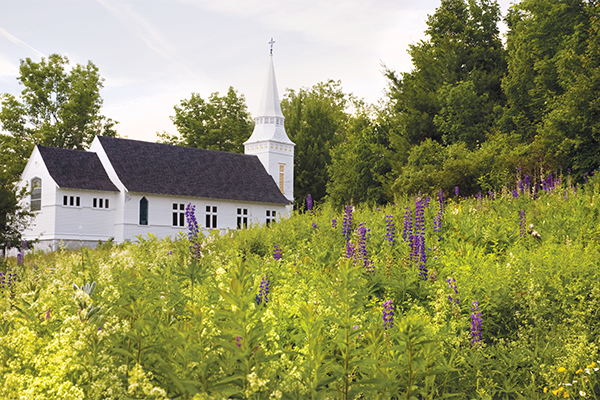FOR YEARS, I’VE been halfway out the church door when it comes to finding spiritual resources that support my deep grief over our sick planet. While there are a growing number of faith leaders teaching on climate change, I confess it sometimes feels too late for people like me who are already losing confidence in institutional Christianity. It’s easier, often, to join like-minded people beyond church walls.
But today I still go to church. In fact, I’m working with A Rocha USA, a nationwide creation care group, to launch a yearlong program for churches in my area yearning to respond faithfully and practically to creation’s groans. Why stay here, rather than turning my energy toward other environmental efforts?
The harvest is ripe. More and more Christians from across the theological spectrum want their faith communities to do something about our environmental crises. A Rocha USA regularly receives requests from churches asking for practical creation care support. These churches might not readily partner with secular environmental groups, but having a theologically credible guide makes all the difference between concerned paralysis and meaningful action.
Churches and denominations also own a significant portion of land around the world. Changing land stewardship practices in a few churches has the potential to ripple across networks and shift norms. What if it became as normal for a church to convert a portion of their land to growing native plants as it is for a church to run a neighborhood soccer ministry? This could mean huge wins for pollinators, air and water quality, and our overall health.
Churches have something unique to offer. While I often grouse about what’s wrong with the church, I can’t escape social psychologist Jonathan Haidt’s observation that people who participate in religious communities have greater happiness and well-being. Haidt attributes this to the way faith sets apart sacred time and space through embodied practices. That is, religious practice has a unique ability to orient people to a shared, ultimate reality. There is something powerful about what happens in churches that can’t be easily replicated in other contexts.
On a personal level, the church is still my mother. Churchgoing folks are still my people, though I have certainly found kindred spirits in other places. Church is the place where I learned to walk, spiritually speaking.
Though I remain on the margins of institutional Christianity, I’m willing to keep investing in the church. It is possible here to deepen place-based discipleship and expand our vision of beloved community to include all of creation. When churches can articulate a robust, faith-based “why” for ecological action and integrate this action into their life together, they have the potential to sustain the work beyond many other more fleeting political or social movements. If restoring native prairies, advocating for climate-forward policies, and teaching children to love all God’s creatures is what the church could be at its best, then maybe more people like me could find a reason to stay.

Got something to say about what you're reading? We value your feedback!







